Here are some images:
Molli's DR 99 2321, Bad Doberan, August 1991
Molli's DR 99 2322, Bad Doberan, August 1991
Whistle and bell signal on the Molli, Bad Doberan, August 1991
The photo I too of the lever frame at Heiligendamm was taken through a reflecting window, so there are some reflections here. In terms of block instruments, there is just a single block instrument for all routes a1, a2, b1 und b2—thus, only one route can be set up at any one time. As for the levers, we can see
- two route levers—in the picture, one can see that the right one is reversed to the upper position for locking route b1;
- two signal levers for the single-armed semaphores A and B—in the picture, the right one is reversed, so home signal B is cleared;
- and two points levers for points 1 and 4—both are in normal position in the picture, as route b1 leads into the main track.
Lever frame, Heiligendamm, August 1991
Here you can see the train that has arrived on this track:
Molli's DR 99 2321, Heiligendamm, August 1991
Until a few years ago, this home signal stood at the entry to the terminus station Kühlungsborn West, but it had been equipped with a white cross showing that it was no longer in use. In 1991 it was still in operation. You can see here, as in some other pictures in previous postings, that narrow signal masts were erected in many places where they were not actually necessary—obviously the spare parts stock for masts was at some point restricted to narrow masts, which were then (at least partially) used as standard masts:
Home signal A, Kühlungsborn West, August 1991
The signal was controlled by this signal lever:
Signal lever, Kühlungsborn West, August 1991
I would think that the lever was flipped in one direction or the other depending on the entry track (1 or 2)—there are at least markings on both drop-in weights. However, there is only one lock below the release slider, which means that a release dependent on the point switch position could probably not have taken place. But maybe there is another lock on the back of the trestle. Maybe someone has a signalling plan that explains how this worked?
Signal lever, Kühlungsborn West, August 1991
Now for some images of Molli steamers:
DR 99 2322, Kühlungsborn West, August 1991
Cleaning the windows on DR 99 2322, Kühlungsborn West, August 1991
Molli, near Steilküste, August 1991
On the return trip, we had to wait in front of the Heiligendamm home signal—presumably the train on track 2 always enters first:
Home signal B from Kühlungsborn, Heiligendamm, August 1991
I only have this blurry photo of the cleared signal, which I show here anyway for the sake of documentation:
Home signal B from Kühlungsborn, Heiligendamm, August 1991
Two more pictures of the famous street running in Bad Doberan:
Molli's DR 99 2321, Bad Doberan, August 1991
Molli's DR 99 2322, Bad Doberan, August 1991
And finally two pictures of a diesel locomotive on the standard gauge side:
DR 119 167, Bad Doberan, August 1991
DR 119 167, Bad Doberan, August 1991
That's it with our pictures from 1991—a few pictures from the Weißeritztalbahn and a small handful of pictures I missed will come in a final posting.
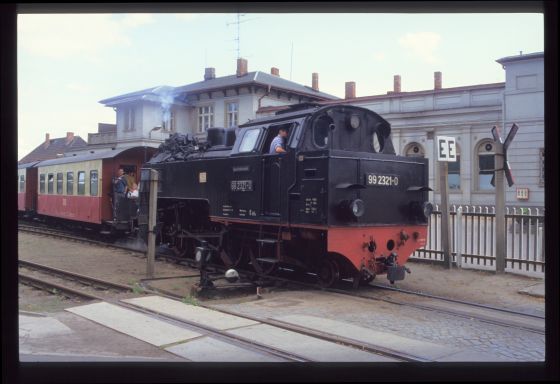
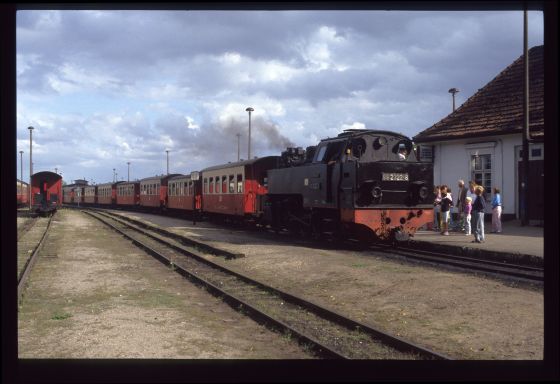
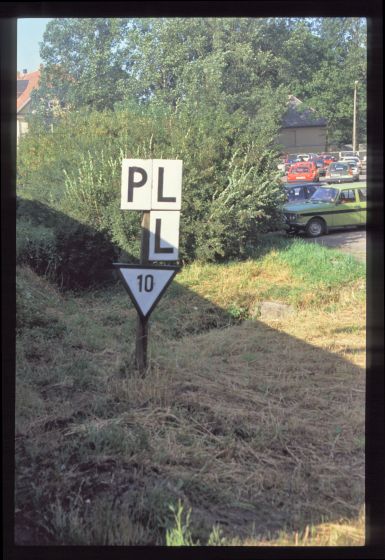
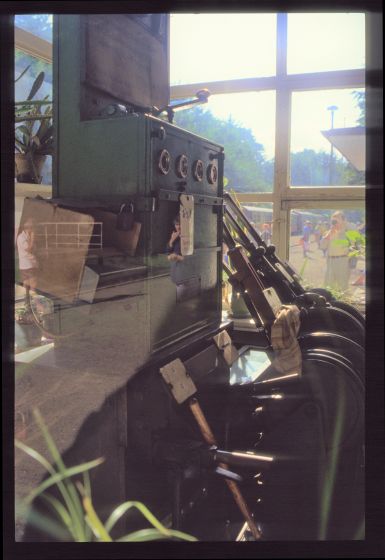
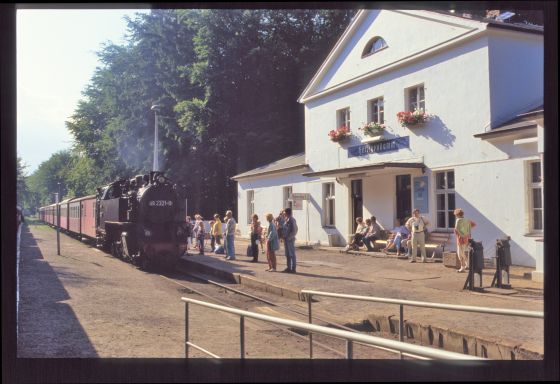
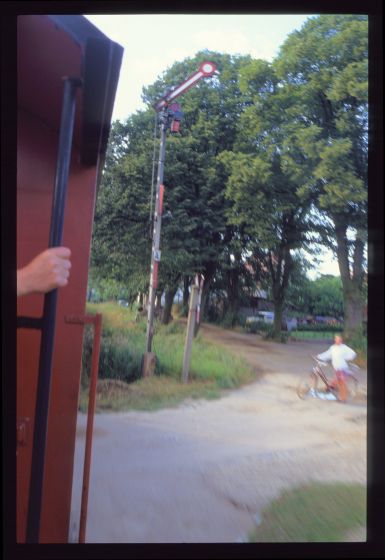
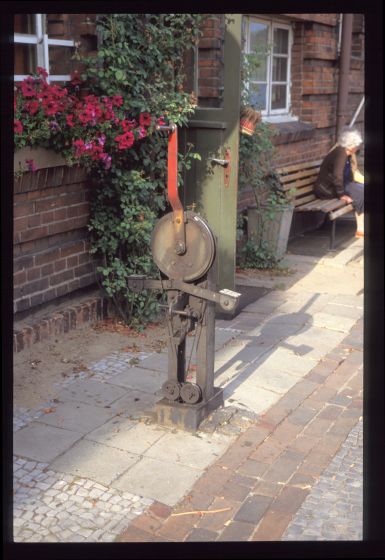
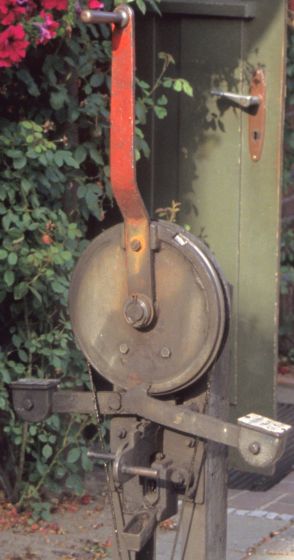
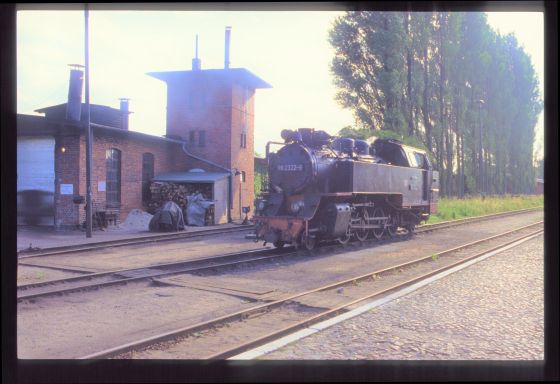
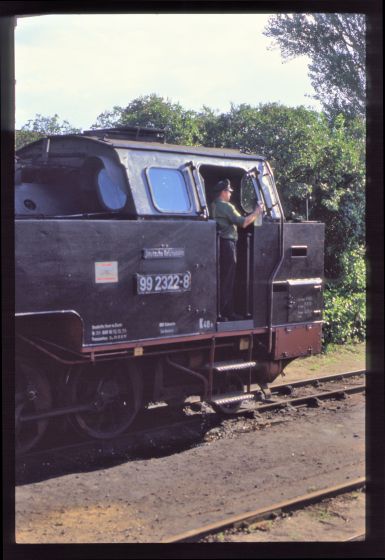
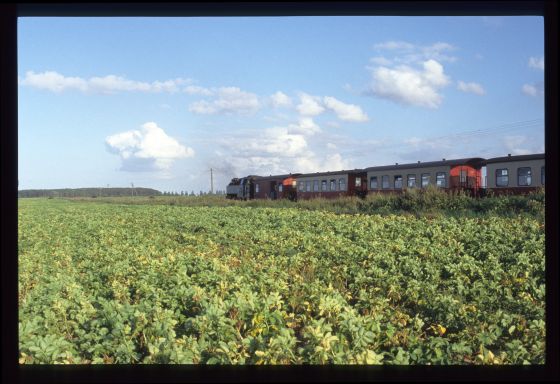
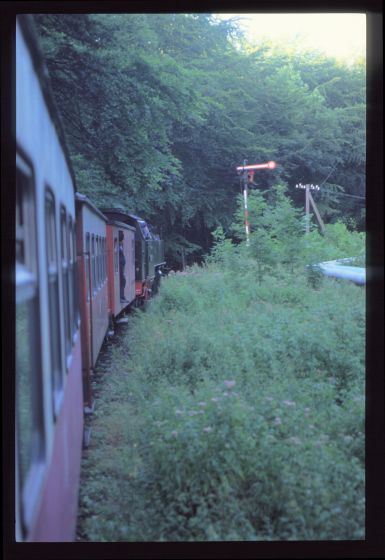
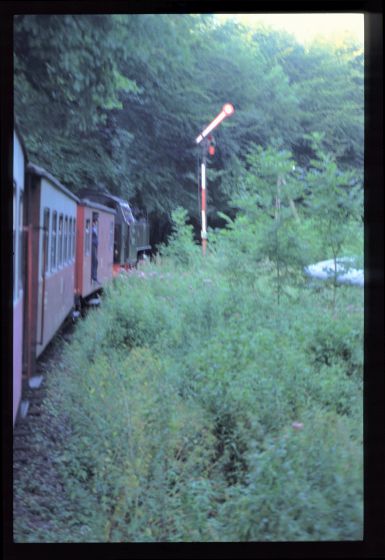
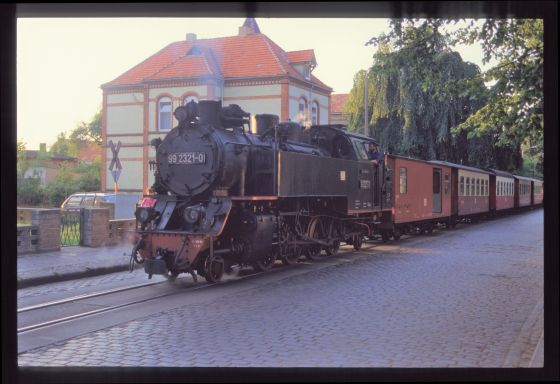
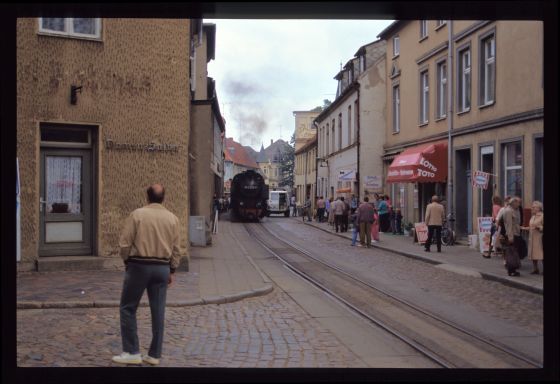
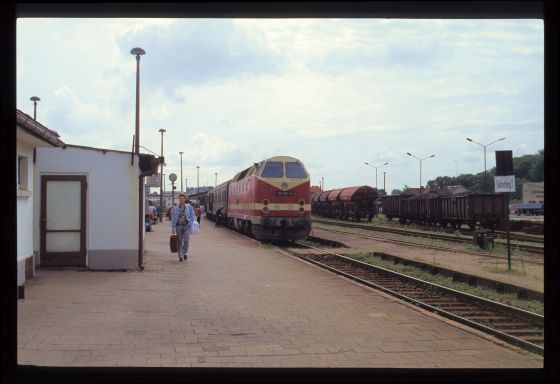
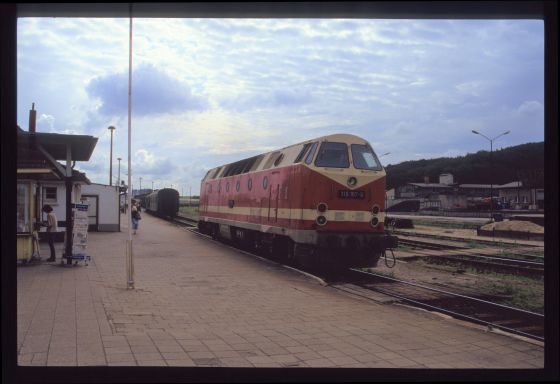
No comments:
Post a Comment